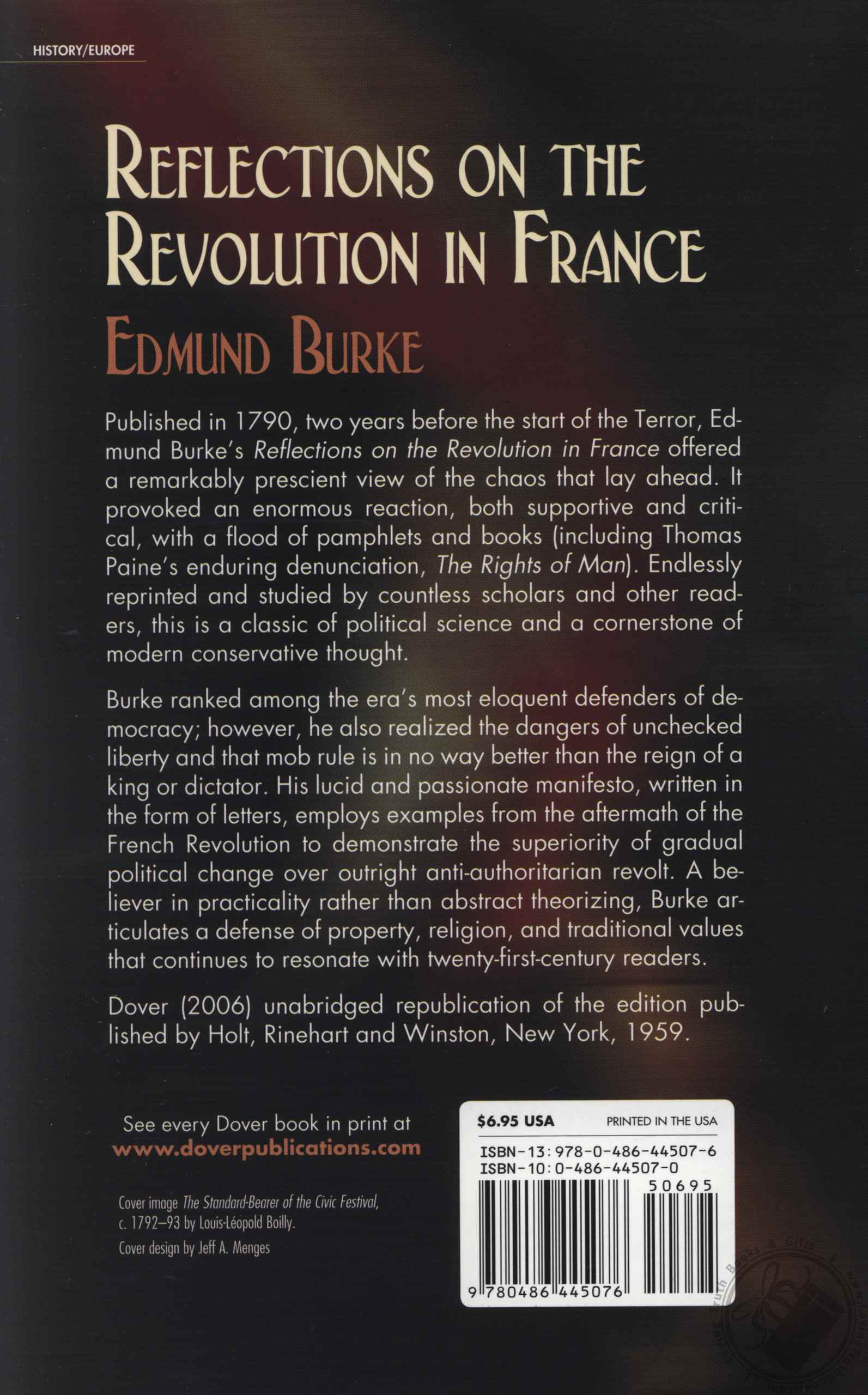

At the time Burke wrote, the execution of Louis XVI in January 1793, one of the most significant events of the Revolution, had not yet taken place, and France was still technically a constitutional monarchy. Initially prompted by economic crisis, the Revolution focused on abolishing the feudal system and the privileges of the aristocracy, championing Enlightenment-inspired reason, equality, and secularism instead. In short, the French Revolution overthrew the monarchy and established a republic in its place, leading to years of violent turmoil and many thousands of executions of those regarded as counterrevolutionary. The French Revolution was a pivotal event for modern history, spanning the decade from 1789-1799. One of Burke’s main rhetorical aims in Reflections on the Revolution in France is to demonstrate that the two Revolutions were completely different in circumstances and tenor. Many in England who supported the French Revolution argued that it was in the spirit of England’s own Glorious Revolution of 1688, in which James II and VII was deposed and replaced by William and Mary. Burke’s other writings include A Philosophical Enquiry into the Origin of our Ideas of the Sublime and Beautiful (1757) and A Vindication of Natural Society (1756). However, he has always been most remembered for his anti-revolutionary writings, including Reflections on the Revolution in France (1790) and Letters on a Regicide Peace (1795-7). He also supported the lifting of restrictions on Catholics in Ireland. Burke wrote polemical materials and speeches for the Rockingham Whigs, often criticizing policies in the American colonies and in British India. He remained in the House until retirement in 1794. The most consequential of these was his role as secretary to Whig leader Lord Rockingham, beginning in 1765, the same year when Burke himself was elected to the House of Commons. He initially had literary ambitions, serving as editor of the literary review Annual Register from 1758 to about 1765, but thereafter began taking positions in government service. He studied in both Catholic and Protestant institutions in Ireland, then studied law in London.

Edmund Burke was born to a Catholic mother and a Protestant father.


 0 kommentar(er)
0 kommentar(er)
